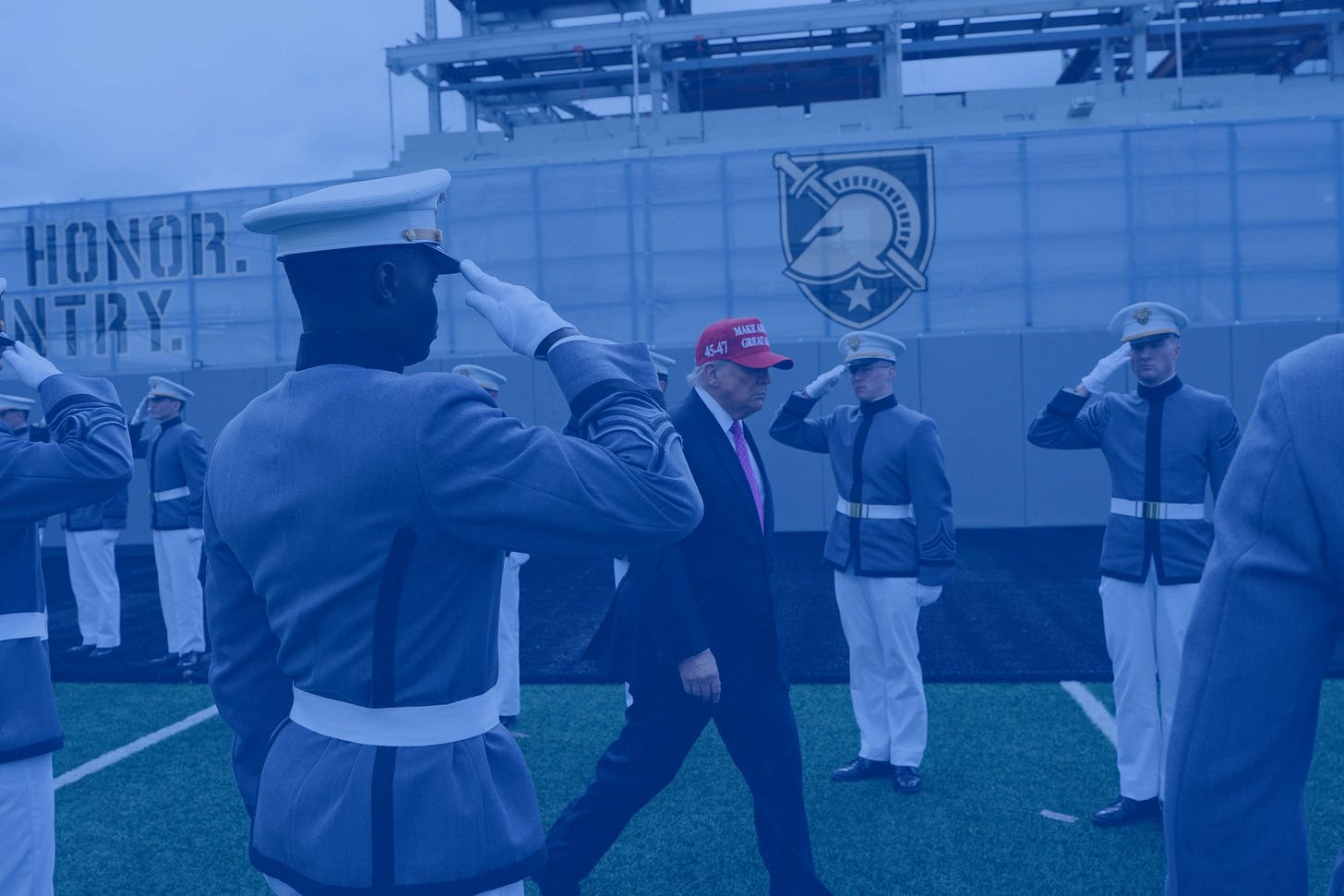America Can Still Do It!
How the U.S. can maintain global primacy
Will America maintain its leadership in the medium term? Even Artificial Intelligence will doubt it when asked. Our primary rival, China, is nipping at our heels in many key industries, and even surpassing us in some. Primacy in a multipolar world is slipping away, and with it the opportunity to shape the rules of the game. The windows of opportunity to maintain this primacy are closing fast, and much opportunity has been squandered by hawks and “nation-builders” in the wars of the past 30 years. America is approaching the point of no return. Unless the United States acts decisively, pragmatically, and with a willingness to make inevitable compromises, we will have to accept that our nation might no longer be the #1 power. And in history, the #2 is rarely spared by the winner. .
The world order is shifting quickly and not in favor of the United States. America's main strategic competitor is building a parallel network of influence: in Eurasia, in Africa, in Latin America. It offers pragmatic agreements without moralizing and lecturing. A new global architecture is being formed — flexible, unspoken, but clearly managed. In it, America is assigned the role of an observer. One can only wonder where the political and economic elite has been looking for the past 30 years? Have all these events happened unnoticed? Citizens understand something is wrong, as our country has squandered its resources on far-flung military adventurism while neglecting our military’s actual readiness exporting countless jobs.
The threat of internal self-destruction is becoming no less dangerous than external threats. The American army, once a symbol of discipline and determination, was used as a showcase for demonstrating the “inclusive” agenda of the Biden administration. Public campaigns formed around gender representation and ideological correctness are displacing professionalism, training, and hierarchy. This causes bewilderment among allies and ridicule among rivals, and authority is falling. At the same time, basic identities are being undermined in schools: children are being instilled with gender ambiguity, sexual narratives are becoming part of the educational norm. Many of the institutions which uphold a stable society are collapsing — Church, family, school, army. This is not progress. This is controlled erosion.
Europe continues to speak from both sides of its mouth, on one hand proclaiming its rhetorical solidarity with the U.S. whilst attempting to use U.S. power and influence for its own ends and eschewing the costs necessary for true strategic autonomy. It draws the United States into its conflicts, while minimizing its own risks.
It would further be a mistake to leave Russia in the orbit of a rival such as China. The United States must find an acceptable way out of the Ukraine conflict for Moscow, to at least make Russia neutral in the U.S.-China rivalry. In the Russian-Ukrainian conflict, all countries are losing: the warring parties are both losing invaluable quantities of men and materiel, the United States and Europe have lost Russia's resources and market, and U.S. authority on the world stage is being called into question. But China has also turned out to be the sole beneficiary of this conflict as it sits in a monopolistic position as an exporter and importer for Russia with its huge resource base, leaving Russia increasingly dependent on China.
China’s influence is penetrating American institutions: the media, education, expertise, human rights. Many recent films extol China and Chinese culture while denigrating the West. At the same time, through the American university system, Chinese students are often being admitted to the American elite over the heads of American ones. The introduction and adaptation of China’s culture by parts of the American elite is happening at all levels. This is not a theoretical threat, but an institutional fact.
America is still nostalgic for the past: victory in the Cold War, dominance of the 90s, technological leadership. But none of these points are a guarantee. History does not reward past success but present vigilance. It gives a chance to those who act. And while the US is stuck in discussing "values" and permanent internal reflection, China is building the infrastructure of a new reality. But it's not too late.
Ivan Chukharev is an independent analyst in the field of strategic culture



